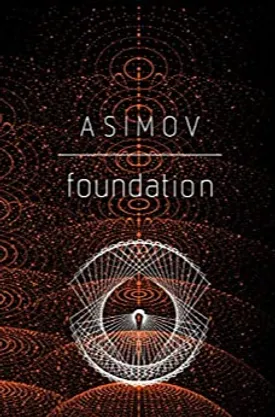Introduction
Isaac Asimov is celebrated as one of the most prolific science fiction authors of all time, writing over 500 books and popularizing many literary genres. Among his most influential works is the Foundation series, a seven- book chronicle set in the distant future and exploring humanity's attempts to conquer the chaotic universe through the establishing of a scientific foundation. This Foundation series, written over a period of four decades, is now seen as one of the classic works of science fiction, and enthralls readers with its epic themes and thought-provoking insights into human nature.
Overview
The Foundation series is set in a mythical Galactic Empire that spans hundreds of thousands of planets. The trilogy of books lays out the story of a psychohistorian named Hari Seldon and his attempts to create a powerful foundation that could bring civilization and order to the galaxy. He predicts that the Galactic Empire is on the brink of its own demise, and foresees an age of 30,000 years of chaos unless his plan is put into motion. With this goal in mind, he establishes two secret societies called Foundations on two different planets.
The first Foundation, located in the planet Terminus, is meant to be an independent organization of scientists who will maintain and advance humanity’s knowledge and technology in order to survive the upcoming dark age. Despite its vast resources, the Terminus Foundation struggles to survive in the face of various threats, both from within and outside the Empire.
The second Foundation, located on the hidden planet Triform, is composed of psychohistorians whose aim is to actively guide the development of the galaxy through careful manipulation of the laws of psychohistory. This second Foundation appears to initially be a benign force, yet as the Galactic Empire faces its own imminent demise, the leader of the Second Foundation decides that it might be necessary to step a bit more boldly into galactic affairs in order to ensure that the Empire survives and flourishes.
Analysis
The Foundation trilogy is seen by many as one of the touchstones of classic science fiction. Asimov’s works are renowned for their intricate plotting, and their humanistic themes. His exploration of human fallibility and free will versus fate, as personified by Hari Seldon and the forces of psychohistory, is a powerful testament to the power of literature awash in scientific speculation. Asimov also skillfully conveys morality and justice, showing that ultimately all humans share the same desire for stability and peace, no matter the consequences.
In Foundation, Asimov portrays a dystopian universe of chaos and strife, and few characters who can fathom the complexity of the ever-shifting political tides, but his story remains ultimately optimistic, as the universe is ultimately driven by humanity's innate desire for progress and stability.
Conclusion
Isaac Asimov’s Foundation series is a powerful combination of science fiction exploration and philosophical reflections on the nature of humanity. Seldom since has an author created such a compelling tale of power, wealth, and justice, and it's certain that the saga will remain a beloved classic for many years to come.

